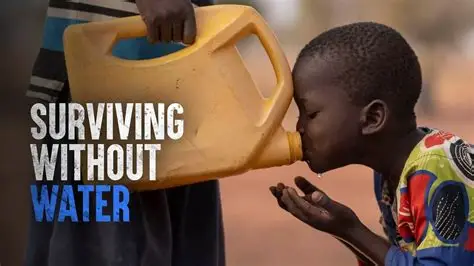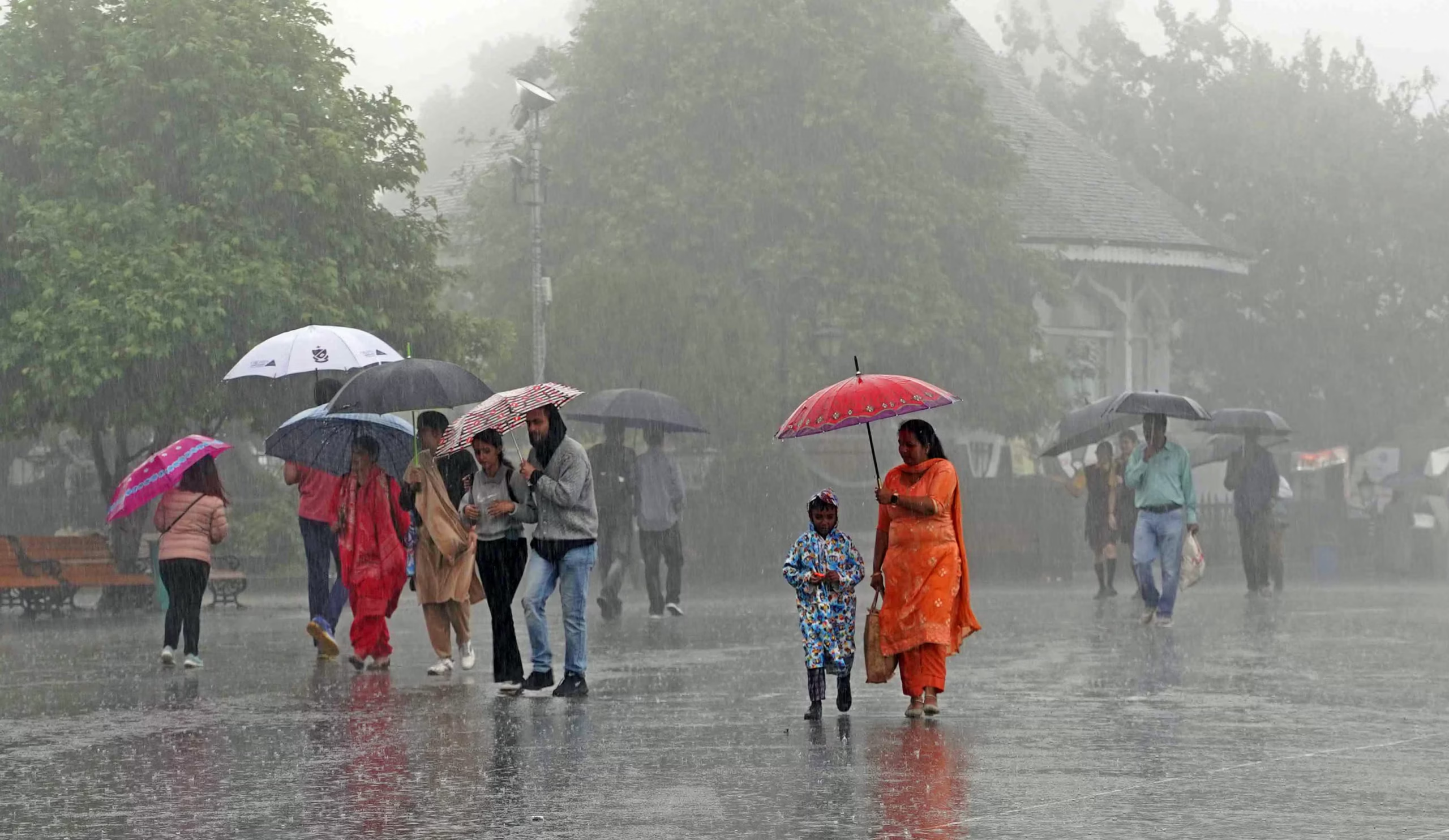Water is not just a beverage; it’s a fundamental component of life. The human body is composed of roughly 55-78% water, playing an indispensable role in virtually every bodily function. From regulating body temperature and lubricating joints to transporting nutrients, removing waste products, and enabling cellular processes, water is constantly being used and lost. This continuous turnover makes hydration absolutely critical for survival.
The question of how long a human can survive without water is complex, with no single, definitive answer. While the popular “Rule of Threes” in survival lore suggests 3 days without water as a general guideline, this is a broad average. The actual duration can vary significantly based on a multitude of factors, highlighting the body’s delicate balance and its vulnerability to dehydration. Historically, instances of survival in extreme conditions (e.g., desert environments, adrift at sea) have provided stark examples of the limits of human endurance without water, often with tragic outcomes. Medical science has since quantified the physiological impacts of water deprivation, emphasizing the rapid onset of severe health consequences.
This article delves into the critical factors that determine human survival time without water, the stages of dehydration, and the severe health impacts of water deprivation.
Understanding Water Loss and Its Impact
Our bodies constantly lose water through various processes, even at rest:
- Urination: The primary way the body excretes waste.
- Sweating: Essential for cooling the body, especially in warm environments or during physical activity.
- Respiration: Water vapor is exhaled with every breath.
- Feces: A small amount of water is lost through waste elimination.
When water intake doesn’t match water loss, the body enters a state of dehydration, which progressively impairs physiological functions.
Factors Influencing Survival Time Without Water
The “3 days without water” rule is a simplified average. Actual survival time is influenced by several critical variables:
- Environmental Conditions (Temperature and Humidity):
- High Temperatures: In hot, dry climates (like a desert), the body sweats profusely to cool down, leading to rapid water loss. Survival time can be drastically reduced to just a few hours to a day in extreme heat (e.g., 40°C / 104°F and above).
- High Humidity: While it reduces evaporative cooling, it still contributes to sweat production if temperatures are high, accelerating dehydration.
- Moderate Temperatures: In temperate climates, survival might extend to 3-5 days.
- Cold Temperatures: Surprisingly, cold environments can also cause dehydration. The body still loses water through respiration (humidifying cold air) and increased urination (cold-induced diuresis). People often feel less thirsty in the cold, leading to insufficient intake.
- Individual Physical Activity Level:
- Strenuous Activity: Intense physical exertion (walking, running, building shelter) dramatically increases sweating and, consequently, water loss. Survival time will be significantly shortened.
- Rest: Remaining still and minimizing movement conserves energy and water, extending survival time.
- Individual Health and Metabolism:
- Age: Infants and the elderly are more susceptible to rapid dehydration and have less physiological reserve.
- Body Fat: Individuals with higher body fat percentages may theoretically survive slightly longer as fat metabolism releases some water, but this is marginal and not a sustainable strategy.
- Pre-existing Medical Conditions: Diabetes, kidney disease, heart conditions, or fevers can accelerate dehydration and complicate the body’s ability to cope.
- Medications: Some medications (e.g., diuretics) can increase fluid loss.
- Food Intake:
- No Food: Surviving without both food and water is more critical, as the body uses metabolic water from food breakdown.
- Food with High Water Content: If any food is consumed (e.g., certain fruits or vegetables), it can slightly extend survival time by providing some fluid, though not enough to fully rehydrate.
- Pre-existing Hydration Level:
- Someone already mildly dehydrated will have a shorter survival window than someone fully hydrated at the start of the deprivation.
The Stages and Symptoms of Dehydration
As the body loses water, it goes through progressive stages of dehydration, each with worsening symptoms:
- Mild Dehydration (1-5% body weight loss):
- Thirst (the first and most obvious sign).
- Dry mouth.
- Fatigue, lethargy.
- Headache.
- Decreased urination (urine becomes darker).
- Moderate Dehydration (5-10% body weight loss):
- Intense thirst.
- Very dry mouth and tongue.
- Sunken eyes.
- Dizziness, lightheadedness.
- Muscle cramps.
- Reduced urine output, very dark urine.
- Confusion, irritability.
- Severe Dehydration (10% or more body weight loss):
- Extreme thirst, inability to swallow.
- Rapid, weak pulse.
- Rapid breathing.
- Low blood pressure.
- Lack of sweating.
- Shriveled skin.
- Altered consciousness (delirium, stupor, coma).
- Kidney failure, organ damage.
- Eventually, death.
How the Body Copes (and Fails) Without Water
When deprived of water, the body initiates a series of compensatory mechanisms:
- Reduced Urine Output: The kidneys reabsorb as much water as possible to conserve fluids.
- Increased Thirst Sensation: The brain signals the need for water.
- Blood Volume Reduction: As fluid is lost from the blood, blood volume drops, leading to decreased blood pressure and less efficient circulation.
- Electrolyte Imbalance: Essential electrolytes (sodium, potassium) become concentrated or imbalanced, disrupting nerve and muscle function.
- Cellular Dysfunction: Cells begin to shrink as water moves out of them to try and maintain blood volume. This impairs cellular processes throughout the body, including brain function.
- Organ Failure: Prolonged severe dehydration leads to organ damage, particularly the kidneys (acute kidney injury), and can result in circulatory collapse and death.
Preventing and Managing Dehydration in Survival Situations
While this article focuses on the duration of survival, understanding how to prolong it is critical:
- Conserve Energy: Minimize physical exertion to reduce sweating. Rest in the shade during the hottest parts of the day.
- Stay Calm: Panic increases heart rate and sweating.
- Seek/Build Shelter: Protection from sun, wind, and extreme temperatures is paramount to reducing water loss.
- Prioritize Water over Food: In short-term survival (up to 3-5 days), finding water is far more important than finding food.
- Avoid Eating Dehydrating Foods: Do not eat salty foods or foods that require a lot of water to digest.
- Do NOT Drink Urine or Seawater: These contain high concentrations of salts that will increase dehydration as your kidneys work harder to excrete them, accelerating fluid loss.
- Sip, Don’t Gulp: If you find water, sip it slowly to allow your body to absorb it efficiently without overloading your system.
Conclusion
The question of how long one can survive without water is answered with a range, typically 3 to 5 days, but can be as short as a few hours in extreme heat or slightly longer in very favorable, cool, and inactive conditions. Water is the most critical immediate resource for human survival, far surpassing food in its urgency. The devastating effects of progressive dehydration highlight the body’s absolute reliance on a consistent water supply for all its vital functions. Understanding these physiological limits underscores the paramount importance of prioritizing hydration in any survival scenario.
FAQ
Q1: What is the absolute minimum amount of time a person can survive without water?
In extremely harsh conditions, such as direct sunlight in a hot desert with no shade and high physical activity, a person could potentially succumb to severe dehydration in as little as a few hours to a single day.
Q2: Does eating food help you survive longer without drinking water?
While some foods, especially fruits and vegetables, contain water, they are not a substitute for direct water intake in a survival situation. The body also requires water to digest food. In a situation where water is scarce, it’s generally recommended to avoid eating foods that require significant digestion, as this can actually increase your body’s water demand. Focus on finding water first.
Q3: Can drinking urine or seawater help you survive longer without water?
Absolutely not. Drinking urine or seawater will accelerate dehydration. Both contain high concentrations of salts and other waste products. Your kidneys would have to use more water to process and excrete these substances than you ingested, leading to a net loss of fluid and worsening your condition.
Q4: What are the first signs of dehydration when you don’t have water?
The very first and most obvious sign of dehydration is thirst. Other early symptoms include a dry mouth, reduced frequency of urination (and darker urine), fatigue, and headache. These quickly progress to more severe symptoms if water is not consumed.
Q5: Why is water more important for survival than food?
Water is more crucial than food for immediate survival because the human body relies on water for all its essential physiological processes, including temperature regulation, nutrient transport, and waste removal. The body can store energy reserves (fat, glycogen) to survive for weeks without food, but it has very limited water reserves. Severe dehydration leads to rapid organ failure and death, whereas starvation takes much longer.






